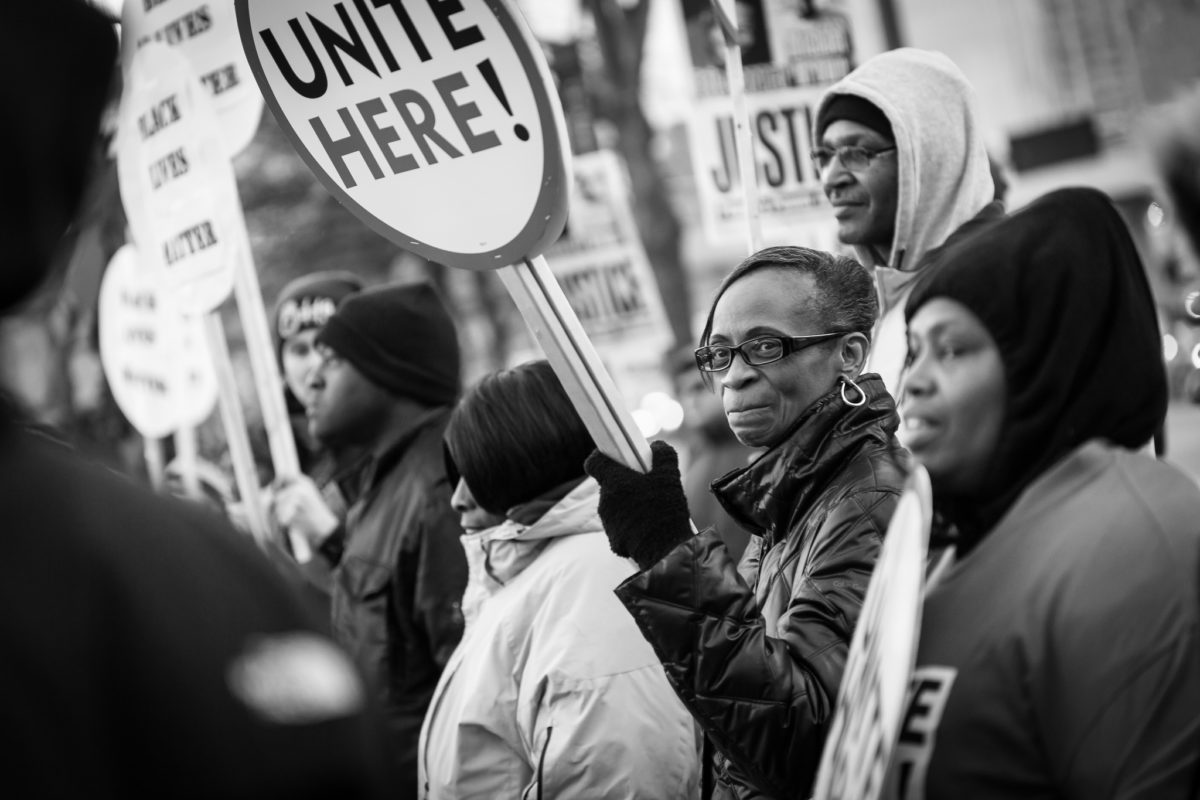As June dawns, Baltimore faces an important week.
Over the weekend, demonstrators in the city joined others across the country to call for justice after George Floyd was killed by police in Minneapolis. Coming after Breonna Taylor was shot to death in Louisville and two Georgia men were arrested months after killing Ahmaud Arbery, Floyd’s killing galvanized calls for an end to systemic racism.
It was a moment that sparked peaceful protests, as well as destruction in some cities that recalled 1968.
You're looking at footage from Chopper 13 minutes ago in North Baltimore. Kneeling in streets with fists in the air remind me of what John Carlos and Tommie Smith did in their 1968 Olympics protests. No reports of any riots. @wjz pic.twitter.com/ErZBLVUo7A
— Max McGee (@MaxMcGeeTV) May 30, 2020
It brought protestors into the streets during a global pandemic, which itself has entered a transition moment in recent days as Maryland officials began to lift restrictions on businesses in recent weeks, and are considering further reopening. With the economic downturn that followed, unemployment continues to surge while the two-month bridge that was extended via government aid to businesses is likely closing soon.
And, on Tuesday, ballots are due in the primary election that will go a long way toward deciding the voted successor to indicted former mayor Catherine Pugh and add more new faces to a City Council that began a generational shift with many younger members voted in four years ago.
These events sprang from a variety of different origins, but they are now interwoven. As one example, the pandemic pushed back the election date.
And, even more evident after this weekend, they are by no means unrelated.
Systemic racism plays a role in how Black people are more likely to be stopped by police, which neighborhoods see more aggressive policing and even how acts of unrest are represented in the media, just as it does in everything from frontline exposure to the virus to small business aid to digital access to continue working in the pandemic.
Equally so, they are moments of organizing for both responses to events in the immediate view and for long-term change going forward. The pandemic led businesses to shift operations toward filling the emergency need for protective medical equipment and set up new networks to provide access to laptops and internet.
The protests in response to police brutality can also lead to organizing beyond courtrooms to address root causes. We’ve seen it before in the city. After the Baltimore Uprising that followed Freddie Gray‘s death in the city in 2015, which marked its fifth anniversary in April, local entrepreneurs and changemakers found a new focus on addressing disparities alongside national organizations that came to town. We’ve since seen growth that seeks to extend the opportunity that comes with entrepreneurship into majority Black neighborhoods, and new organizations like B360, Hack Baltimore and Open Works bring new models for addressing inequality and working on generational challenges.
And in the election, there is a moment to think about how the city’s leaders can influence the systems at the heart of policing and criminal justice during a national outcry, public health in a pandemic and economic opportunity amid a downturn.
It is a time when citizenship comes to the forefront, not just in a nation but also in the city where you are located. That has implications for founders and business leaders, too.
In Baltimore, even against a backdrop of marquee names leaving the city, we’ve witnessed in recent years as plenty of tech and creative businesses have made investments and planted a flag in the city. At ribbon cuttings for new offices and gathering points, I’m often struck by the sense of civic purpose as leaders address why they’re in Baltimore alongside talk of architectural details and company culture. It’s a sign that everyone is aware they are standing alongside each other not just as colleagues, but city residents and ultimately humans.
And it’s important to remember that sense of citizenship doesn’t disappear now, when as a nation we are at a time where systemic racism is at the front of a national conversation. Leaders of a workplace where employees spend much of their weekdays engaging have a role in carrying it forward.
Still, it is understandable that many knowledge workers, technologists, tech entrepreneurs and other professionals can feel lost in the moment. What do you do now?
- You must address your staff. Look here for a primer on how to do that. You cannot be silent on this issue.
- Understand the context and history. You have to help guide your team to understand this moment. Something like this hasn’t happened for at least 50 years.
- Take action. The response can come in different ways, whether in making space for open dialogue and ensuring team members can vote or through remaking systems for hiring and investing.
There are others from whom you can learn, whether it is leaders in Baltimore or businesses and VCs around the country who are saying they cannot sit idly by, and offering responses.
https://twitter.com/bryce/status/1266943050607218694
And we’ll be here, providing resources and tracking what’s being done. What’s apparent at a critical time for the city is that we must meet the moment — on all levels.
Before you go...
Please consider supporting Technical.ly to keep our independent journalism strong. Unlike most business-focused media outlets, we don’t have a paywall. Instead, we count on your personal and organizational support.
Join our growing Slack community
Join 5,000 tech professionals and entrepreneurs in our community Slack today!

The person charged in the UnitedHealthcare CEO shooting had a ton of tech connections

From rejection to innovation: How I built a tool to beat AI hiring algorithms at their own game

Where are the country’s most vibrant tech and startup communities?


